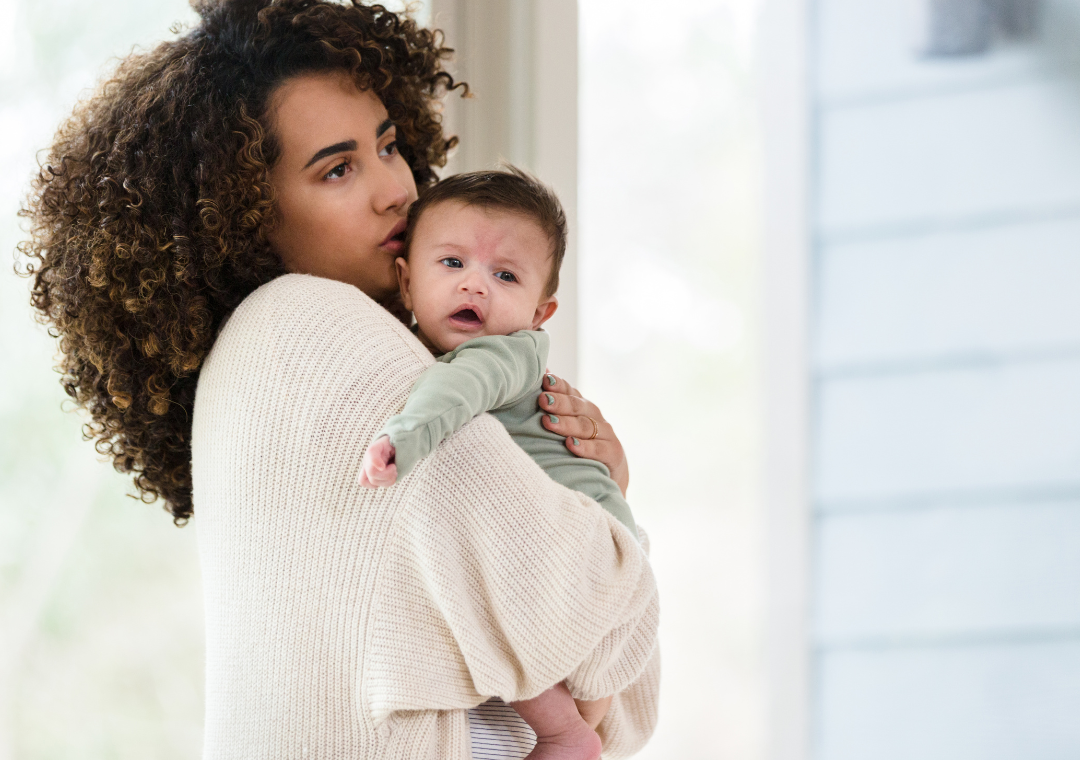
May is mental health awareness month, so we thought it would be appropriate to talk about maternal mental health. After all, being a mom may be gratifying but it certainly isn’t easy. Sometimes women neglect their own health to prioritize their children’s needs, but it's important to recognize that your mental health matters as much as anyone else’s.
Postpartum depression & the baby blues
It’s refreshing that people are beginning to talk about postpartum depression more; however, we still have a lot of work to do as a society. American women rarely receive extensive postpartum care beyond leaving the hospital after giving birth. How many days do they tend to spend in the hospital, you ask? According to PLOS Medicine, the United States was on the low end of the spectrum with two days on average. This puts them alongside with countries like Kenya and Haiti (1).
The American College of Obstetricians and Gynecologists writes, “Home visits are provided in some settings; however, currently, most women in the United States must independently navigate the postpartum transition until the traditional postpartum visit (4–6 weeks after delivery). This lack of attention to maternal health needs is of particular concern given that more than one half of pregnancy-related deaths occur after the birth of the infant [3]” (2).
The baby blues are one thing- hormones fluctuate like crazy after you give birth and its normal to feel exhausted and emotional in the early days of motherhood. Yet, if you’re feeling depressed far beyond the first few weeks, you should highly consider seeking help from a professional. Postpartum depression should not go untreated because of the impact it has both on the mom and the infant.
Beyond postpartum depression
Being a mom is a lifelong responsibility. Like most things, it comes with its ups and downs. Even though you are well beyond the postpartum years doesn’t mean you’re immune to depression, anxiety, or other mental health disorders. We need to get past this false idea that postpartum depression is the only manifestation of mental health problems in mothers.
The list extends far beyond depression and anxiety, including anything from Irritable Bowel Syndrome (IBS) to eating disorders. For many of these mental health disorders, women are more likely to be affected than men, and it often strikes in a woman's thirties- around the peak time of parenthood.
Mental health disorders should not be left untreated. Data demonstrates a mother’s mental health can impact her children’s psychopathology, as well (4). Try to find support if you recognize yourself suffering from any of these disorders- there’s always a positive solution.
Resources:
- http://journals.plos.org/plosmedicine/article?id=info:doi/10.1371/journal.pmed.1001972
- https://www.acog.org/Clinical-Guidance-and-Publications/Committee-Opinions/Committee-on-Obstetric-Practice/Optimizing-Postpartum-Care#6
- https://www.thelancet.com/journals/lancet/article/PIIS0140-6736(14)60696-6/fulltext
- https://www.cambridge.org/core/journals/the-british-journal-of-psychiatry/article/relative-impact-of-maternal-depression-and-associated-risk-factors-on-offspring-psychopathology/2C2DBAD78CB2763623790D8D85F8518F

